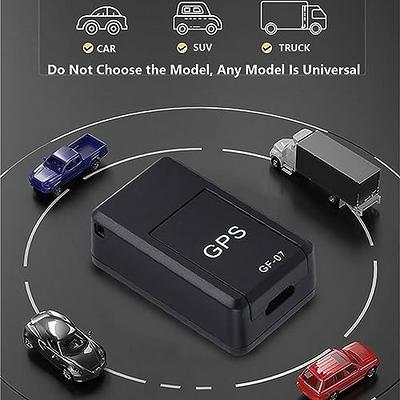Pets are more than just animals, they are cherished members of our families. Whether you have a dog, cat, or any other furry companion, their safety is always a top priority. This is where pet trackers come into play - they provide peace of mind by allowing you to easily locate your pet if they ever get lost. However, with so many options available on the market, it can be overwhelming to choose the right pet tracker for your furry friend. In this article, we will dive into the different factors to consider when selecting a pet tracker to ensure you find the perfect device for your beloved pet.
Types of Pet Trackers: GPS vs Bluetooth

The first thing to consider when choosing a pet tracker is the type of technology it uses. There are two main types of pet trackers: GPS and Bluetooth. Each has its own set of pros and cons, and understanding them will help you make an informed decision.
GPS Trackers
Global Positioning System (GPS) trackers use satellite technology to track your pet's location. They are typically attached to your pet's collar and send real-time location updates to your smartphone or computer. This allows you to track your pet in real-time, no matter how far they wander.
Pros:
- Accurate real-time tracking
- Wide range coverage
- Can be used in areas without cellular coverage
Cons:
- More expensive than Bluetooth trackers
- Require a monthly subscription for GPS service
- Battery life may drain faster due to constant use of GPS
Bluetooth Trackers
Bluetooth trackers use Bluetooth technology to track your pet's location within a short range. They are usually smaller and lighter than GPS trackers and are best suited for indoor use. Unlike GPS trackers, Bluetooth trackers do not require a monthly subscription for tracking.
Pros:
- Less expensive than GPS trackers
- No monthly subscription required
- Longer battery life
Cons:
- Limited range (typically 30-100 feet)
- Require a smartphone or tablet to track your pet
- May not work in areas without Bluetooth coverage
When deciding between GPS and Bluetooth trackers, it's important to consider your pet's needs and where they spend most of their time. If your pet is an outdoor explorer or frequently goes on adventures with you, a GPS tracker would be the better option. However, if you have an indoor pet or one that doesn't stray too far from home, a Bluetooth tracker may suffice.
Features to Consider

Pet trackers come with a variety of features, and understanding them will help you narrow down your options. Here are some common features to consider:
Activity Tracking
Some pet trackers come with activity tracking capabilities that monitor your pet's daily movements and exercise levels. This can be helpful in ensuring your pet is getting enough physical activity and can also provide insight into any changes in behavior or health.
Geofencing
Geofencing allows you to set up virtual boundaries for your pet. If your pet leaves the designated area, you will receive an alert on your phone. This feature can be especially useful for pets who tend to wander or escape from their yard.
Alerts
Alerts can notify you about various events related to your pet, such as a low battery, if your pet has been inactive for a certain period of time, or if they are in danger. These alerts can provide peace of mind and ensure that you are always aware of your pet's well-being.
When choosing a pet tracker, consider which features are most important to you and your pet's lifestyle. Some trackers may offer all of these features, while others may only have a few. It's important to prioritize what you need in a tracker to make the best decision.
Price Range

Pet trackers can vary in price, from as low as $50 to over $500. The price of a tracker will depend on the type, features, and brand. Keep in mind that although a pet tracker may seem expensive, it is a one-time purchase that can potentially save your pet's life.
Here's a breakdown of the average prices for different types of pet trackers:
| Type of Tracker | Average Price Range |
|---|---|
| GPS Tracker | $100 - $300 |
| Bluetooth Tracker | $50 - $150 |
It's important to note that GPS trackers often require a monthly subscription fee, which can add up over time. Therefore, make sure to consider not only the initial cost but also any additional fees when comparing prices.
Battery Life
The battery life of a pet tracker is an essential factor to consider, especially if you plan on using it for extended periods. Some trackers have a battery life of up to a year, while others need to be charged every few days. Make sure to research the battery life of the tracker you are interested in to ensure it meets your needs. It's also a good idea to keep spare batteries on hand or opt for a rechargeable tracker to avoid any downtime.
Durability
If you have an active pet who loves outdoor adventures, durability should be a top consideration when choosing a pet tracker. Ensure that the device is water-resistant and can withstand rough conditions. Look for trackers with sturdy materials and secure attachments to your pet's collar to prevent it from falling off.
Brand and User Reviews
With so many pet trackers on the market, it can be challenging to know which brands are reputable and provide quality products. Do your research, read reviews from other pet owners, and consider the customer service and warranty offered by the brand. Choosing a well-known and trusted brand can give you peace of mind knowing you have a reliable product to help keep your pet safe.
Conclusion
In conclusion, choosing the right pet tracker for your furry friend can seem like a daunting task. However, by considering the type of tracker, features, price range, battery life, durability, and brand reputation, you can make an informed decision that meets your pet's specific needs. Remember, a pet tracker is an investment in your pet's safety and well-being, so take the time to research and choose the best one for your beloved companion.



